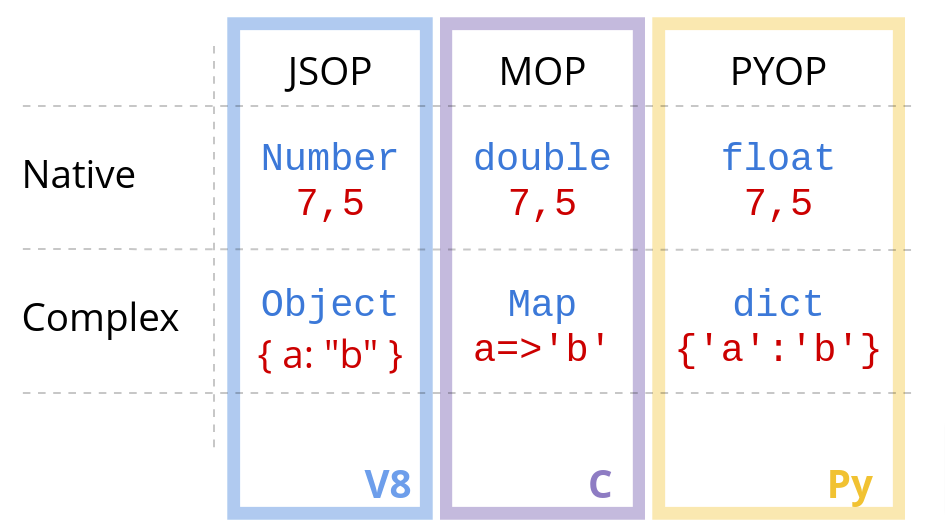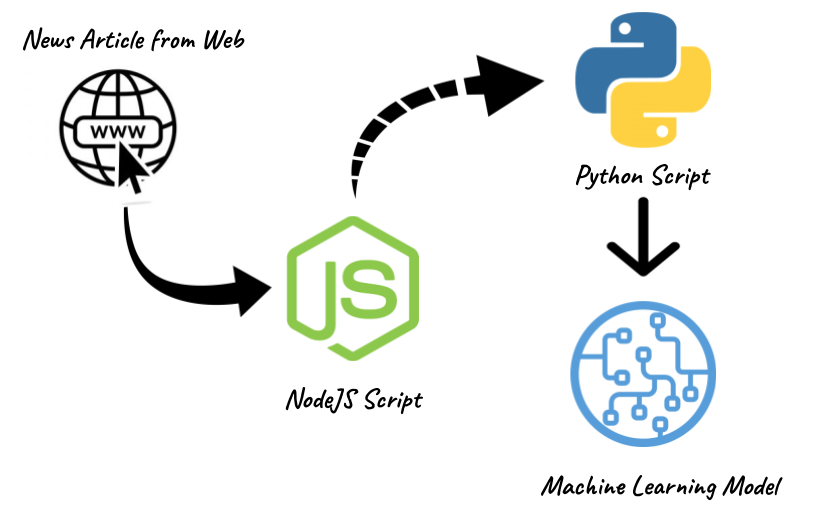Agenda
-
Introduction to Polyglot development
-
Getting started with MetaCall Core
-
Understanding the underneath of the Core
-
Walking through a Polyglot Machine Learning application
-
Building a Polyglot application using Core
-
Q&A
Problems at hand
-
Slow and painful migration of legacy codebases. Example: Java -> Node JS
-
Lack of interoperability between libraries across languages. Example: Python -> NodeJS
-
Embedding low level libraries or scripts in high-level environments.
Introduction to Polyglot development
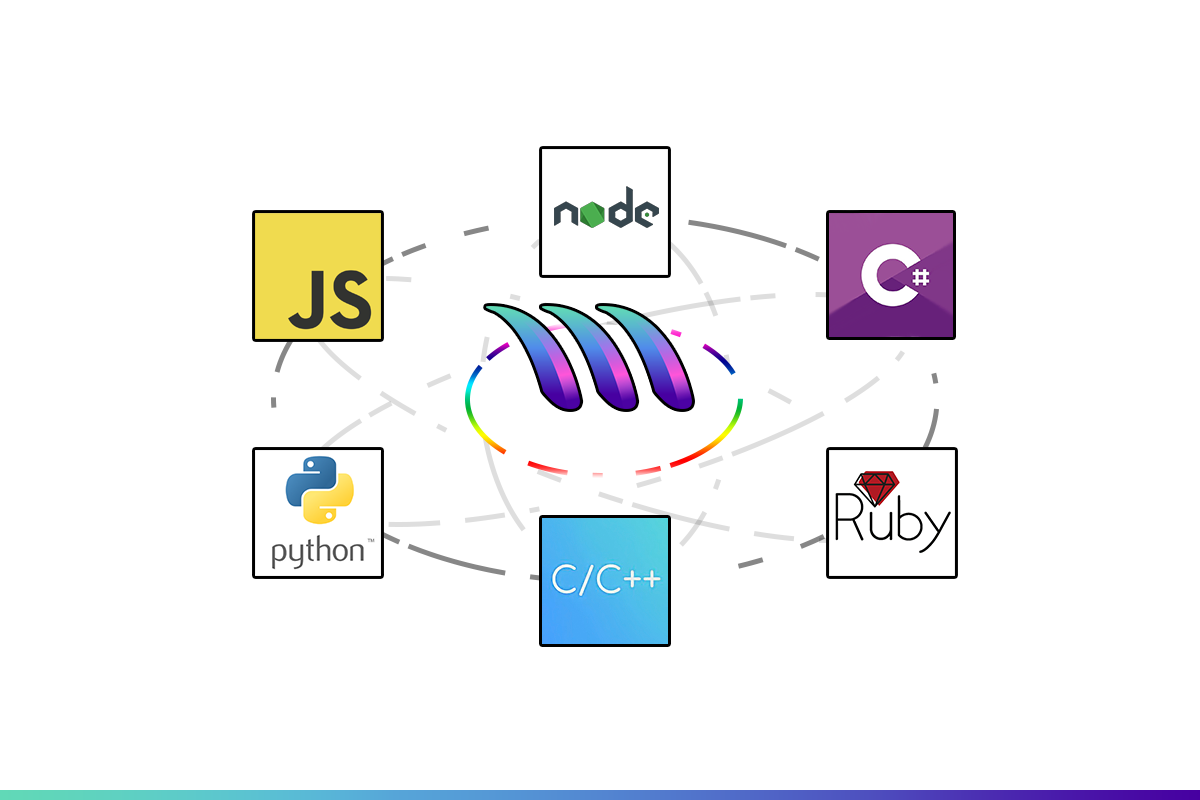
Why Polyglot development?
-
Help developers find the best possible solution through any framework/library possible.
-
Mix toolings, scripts, libraries amongst multiple languages without any friction.
-
Embed low-level and high-level code without sacrificing any portability and interoperability.

MetaCall is an Open-Source Polyglot runtime.
It brings forward:
-
Cross-language imports.
-
Multiple language support through a CLI and runtime.
-
N:N interoperability with a transparent API.
Demonstration
sum.py
def sum(a, b):
return a + b
main.js
const { sum } = require('./sum.py');
sum(3, 4);
CLI
metacall main.js
Installation
| |
| curl -sL https://raw.githubusercontent.com/metacall/install/master/install.sh | sh |
| |
| |
| wget -O - https://raw.githubusercontent.com/metacall/install/master/install.sh | sh |
| |
| |
| docker pull metacall/core |
| |
| curl -sL https://raw.githubusercontent.com/metacall/install/master/install.sh | sh |
| |
| |
| wget -O - https://raw.githubusercontent.com/metacall/install/master/install.sh | sh |
| |
| |
| docker pull metacall/core |
| |
| curl -sL https://raw.githubusercontent.com/metacall/install/master/install.sh | sh |
| |
| |
| wget -O - https://raw.githubusercontent.com/metacall/install/master/install.sh | sh |
| |
| |
| docker pull metacall/core |
| |
| curl -sL https://raw.githubusercontent.com/metacall/install/master/install.sh | sh |
| |
| |
| wget -O - https://raw.githubusercontent.com/metacall/install/master/install.sh | sh |
| |
| |
| docker pull metacall/core |
| |
| curl -sL https://raw.githubusercontent.com/metacall/install/master/install.sh | sh |
| |
| |
| wget -O - https://raw.githubusercontent.com/metacall/install/master/install.sh | sh |
| |
| |
| docker pull metacall/core |
| |
| curl -sL https://raw.githubusercontent.com/metacall/install/master/install.sh | sh |
| |
| |
| wget -O - https://raw.githubusercontent.com/metacall/install/master/install.sh | sh |
| |
| |
| docker pull metacall/core |
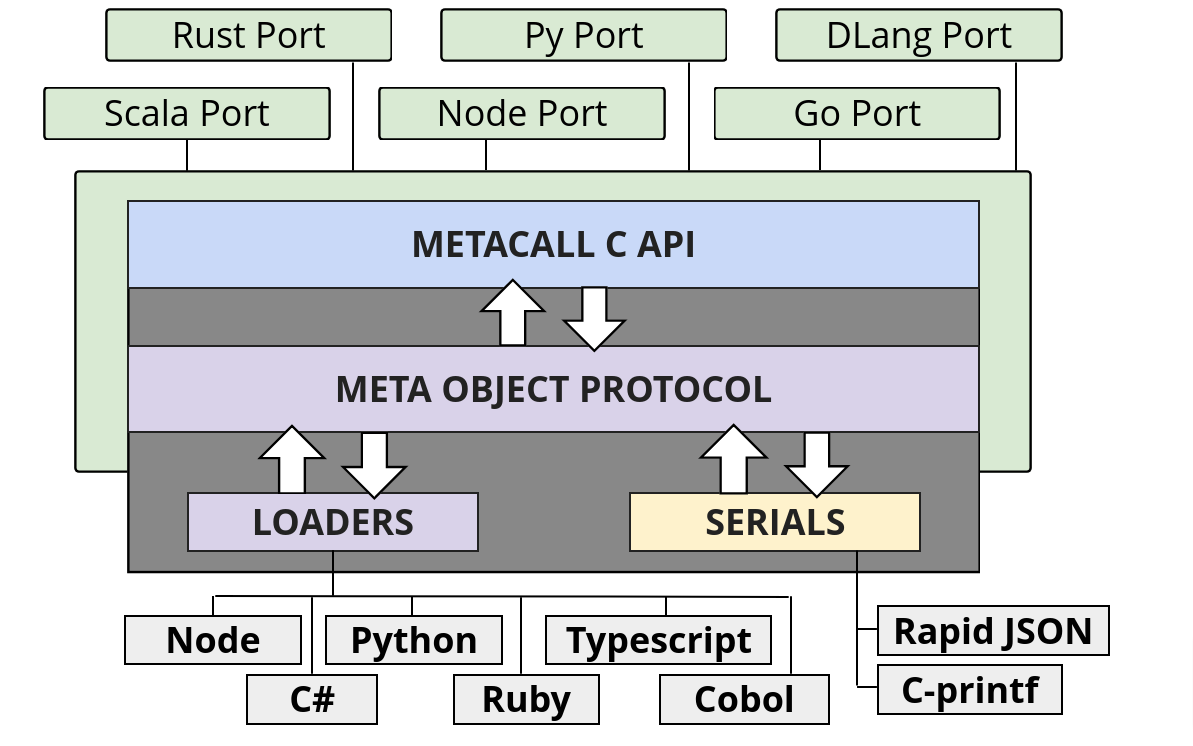
Understanding Ports
-
Inner architecture of MetaCall Core is driven by ports.
-
Ports offer MetaCall to other languages.
-
C API wrappers expose the functions to other languages.
-
Monkey Patching is used to make the API transparent for users overall.
Understanding Loaders
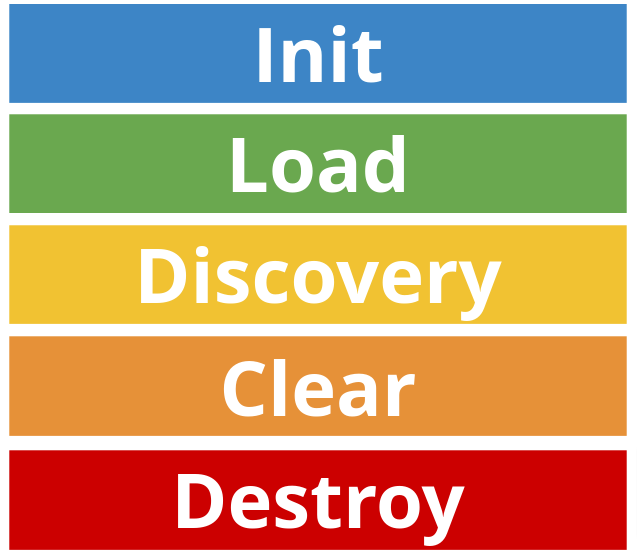
-
Loaders are used for embedding languages into MetaCall.
-
Act as plugins for a common interface wrapping the runtimes.
-
Loading them dynamically during execution.
-
MetaCall FaaS allows us to deploy applications built on MetaCall Core
-
Provides automated API generation and high performance server over a Kubernetes cluster.
-
Zero vendor locking and nudge towards NoOps development
Benchmarks
| Software |
Time |
Bandwidth |
Calls/sec |
| Python C API |
544 ms |
42.0545MB/s |
1.75227M items/s |
| MetaCall Python Variadic Arguments Call |
988 ms |
23.1689MB/s |
988.54k items/s |
| MetaCall Python Array Arguments Call |
903 ms |
25.353MB/s |
1081.73k items/s |
Check out the source for MetaCall benchmarks
Building a Polyglot application
What are we going to do?
-
Write a simple Python script.
-
Inspect the script using MetaCall CLI.
-
Load a script module in an Express API.
-
Test the API
- Acid Cam: Video manipulation using OpenCV which uses MetaCall to embed Python scripts in plugin system.
- Pragma: Language used to build GraphQL APIs which uses MetaCall to import and execute functions in multiple languages.
- Polyglot Kernel: IPython wrapper kernel using MetaCall Core to embed multiple languages into the Jupyter notebook interface.
Building Polyglot applications using MetaCall Core
Harsh Mishra
@harshcasper
@harsh_casper
This talk on Github: HarshCasper/pycon-my-2021




